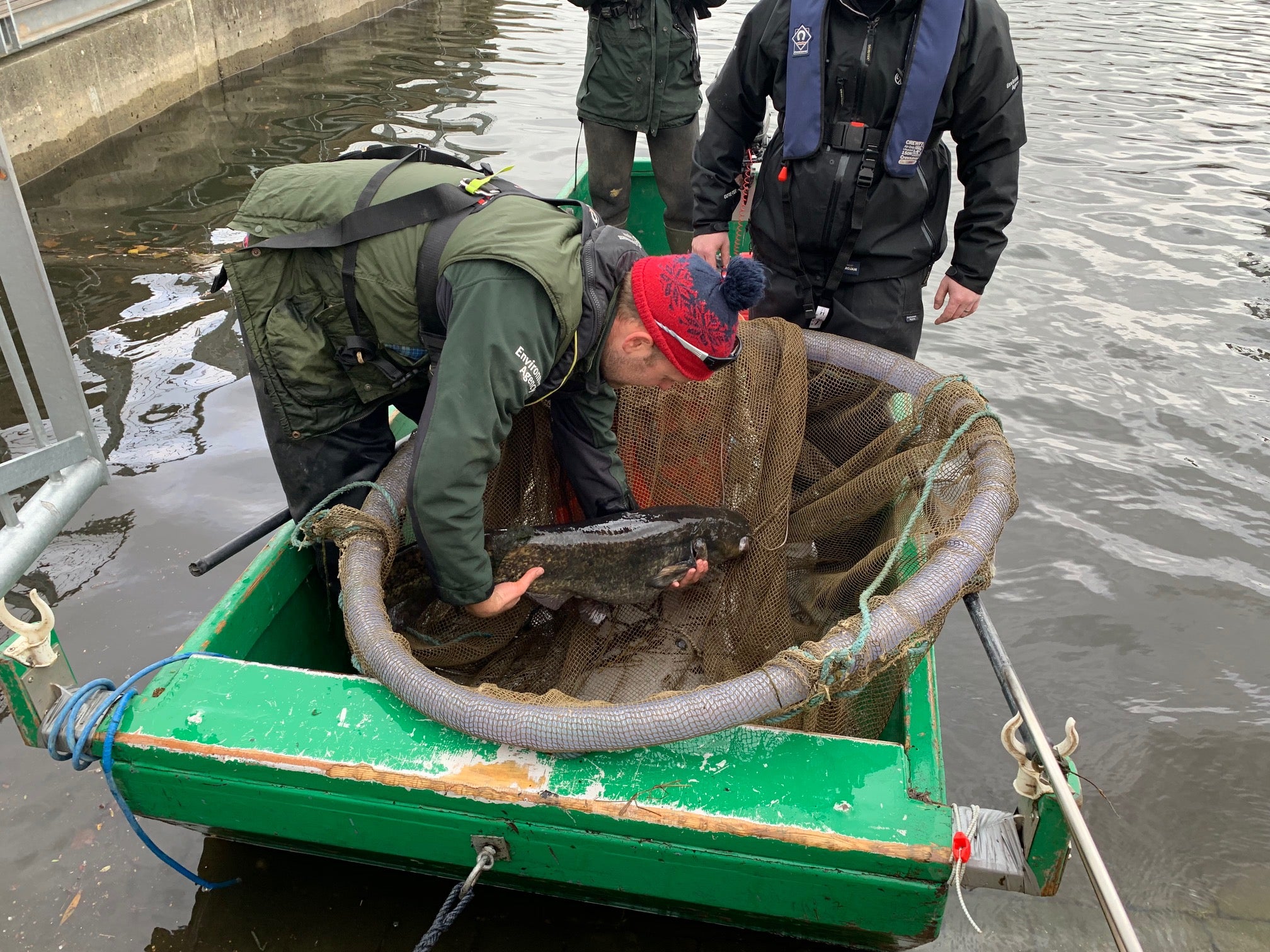Your support helps us to tell the story
From reproductive rights to climate change to Big Tech, The Independent is on the ground when the story is developing. Whether it's investigating the financials of Elon Musk's pro-Trump PAC or producing our latest documentary, 'The A Word', which shines a light on the American women fighting for reproductive rights, we know how important it is to parse out the facts from the messaging.
At such a critical moment in US history, we need reporters on the ground. Your donation allows us to keep sending journalists to speak to both sides of the story.
The Independent is trusted by Americans across the entire political spectrum. And unlike many other quality news outlets, we choose not to lock Americans out of our reporting and analysis with paywalls. We believe quality journalism should be available to everyone, paid for by those who can afford it.
Your support makes all the difference.A large fish spotted eating ducks in a lake at an Essex shopping centre has been removed because it upset children.
The 11kg catfish had to be plucked out of the man-made water feature at the mall, Intu Lakeside in Thurrock, by the Environment Agency after complaints the whiskered creature had been seen consuming passing ducks and other wildfowl.
“It’s not great for kids to see these large fish eating the ducks, so we removed this large catfish,” Ben Norrington, a fisheries officer with the agency, said.
The catfish, which is just one of many which call the shopping centre’s lake home, is an invasive species not native to Britain.
Environment Agency staff found a fully enclosed lake to relocate the aggressive fish to, where it could no longer cause consternation with its voracious appetite.
“We will work with the [shopping centre] to manage the risk posed by the remaining catfish population,” Mr Norrington said.
Invasive species such as the catfish posed a “serious threat to our native wildlife and cost the UK economy a massive £1.8bn a year”, he added.
The Environment Agency is currently searching through waters where non-native fish could escape into rivers and natural lakes and endanger Britain’s indigenous wildlife.
Catfish, so called because of their spiny “barbel” protrusions which resembles a cat’s whiskers, range in size but can be as big as 2.5m long and weigh up to 100kg.

Although most catfish subsist on other fish, aquatic plants and even algae, some species are known to eat rodents, frogs and birds as well.
Some of the larger types are even thought to have attacked humans on rare occasions.
The Environment Agency plans to hold fishing competitions to encourage anglers to catch catfish in Britain as part of a scheme to relocate the invasive species out of the wild.

Join our commenting forum
Join thought-provoking conversations, follow other Independent readers and see their replies
Comments